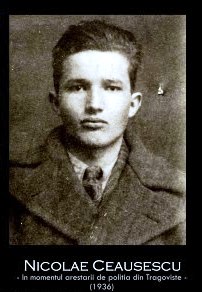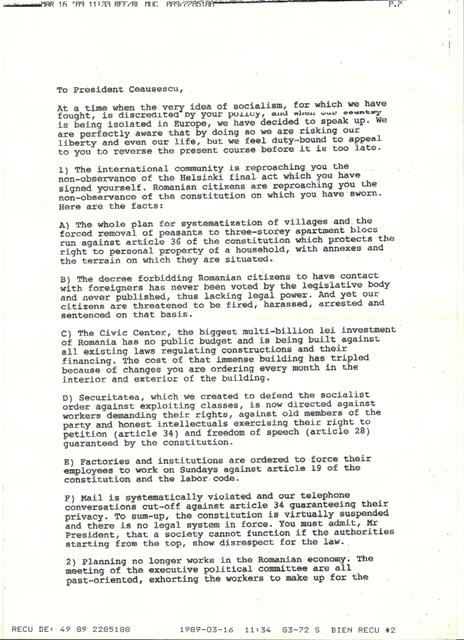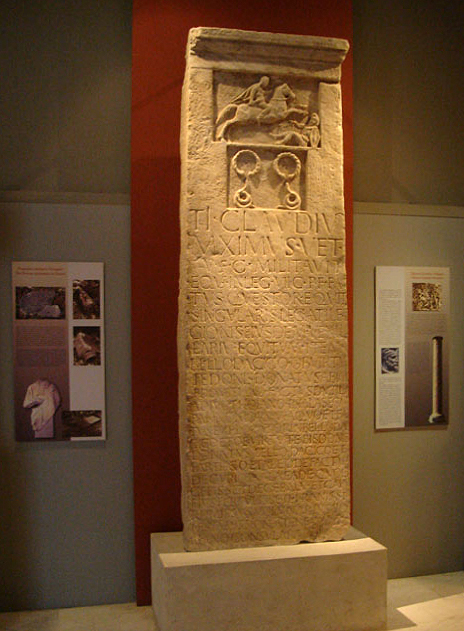Pentru prima data pe internet, un document cu valoare istorica
Ce este scrisoarea celor sase ?
“Scrisoarea celor şase“ este un document de importanta istorica, asumat de sase veterani ai PCR, de aici provenindu-i si numele. Toţi erau vechi activişti ai PCR, din perioada ilegalităţii (anii ’30-’40). Scrisoarea deschisa adresata lui Nicolae Ceausescu a fost citită la 11 martie 1989 pe posturile de radio Europa Liberă şi BBC. Semnatarii scrisorii sunt: Alexandru Bârlădeanu, Corneliu Mănescu, Constantin Pârvulescu, I. Răceanu, Silviu Brucan şi Gheorghe Apostol.
Cum am ajuns in posesia textului original
Intamplator, dupa o discutie avuta cu Irina Barladeanu, fiica unuia dintre semnatari, Alexandru Barladeanu, am intrat in posesia variantei in limba engleza a scrisorii. Dupa cum se poate observa din documentul scanat, acesta soseste probabil prin telex, la Paris, in data de 16 martie 1989, la doar cateva zile dupa ce fusese citit la BBC. De aici, el este inmanat de un membru al serviciilor secrete din Hexagon fiului lui Alexandru Barladeanu, aflat la Paris, la acea data. Iata pe scurt “odiseea scrisorii celor sase”
 Scrisoarea celor sase – idei principale
Scrisoarea celor sase – idei principale
In deschidere semnatarii subliniaza ca sunt constienti de riscurile pe care si le asuma facind public acest protest. Fara a condamna socialismul sau comunismul critica diverse aspecte ale politicii interne adoptate de Ceausescu. Planul de sistematizare si urbanizare prin distrugerea satului romanesc, privarea populatiei de energie electrica, alimente, caldura, transportul defectuos, realitati simtite de toata lumea, sunt criticate. Nici amestecul dictatorului in ridicarea Centrului Civic ca si cheltuielile ametitoare nu sunt vazute cu ochi buni. Securitatea creata pentru apararea socialismului de clasele exploatatoare, se arata in document, lupta acum contra muncitorilor ce isi cer drepturile, a vechilor membri de partid, a intelectualilor onesti ce-si exercita dretul lor la protest si la libertatea cuvantului. Corespondenta este vioata, telefoanele ascultate si taiate in dezacord cu legea. Starea proasta a fabricilor, lipsa de materie prima, de energie si de piata de desfacere este semnalata. Condamnata este si politica fata de minoritati: “Chiar faptul ca germanii, maghiarii si evreii emigreaza in masa arata faptul ca ar trebui sa se renunte la politica de asimilare fortata. In final semnatarii isi arata ingrijorarea fata de izolarea diplomatica in care se gasea Romania, de inchiderea unor ambasade, precum cea a Portugaliei si cea a Danemarcei, precum si de pierderea “Clauzei natiunii celei mai favorizate” Pentru a remedia aceste probleme cei sase vin cu solutii: 1 Renuntarea la planul de sistematizare al satelor, 2 Restaurarea garantiilor constitutionale privind libertatile cetatenesti. 3 Sistarea exporturilor de mancare care ameninta existenta biologica a natiunii.
To President Ceausescu,
At a time when the very idea of socialism, for which we have fought, is discredited by your policy, and when our country is being isolated in Europe, we have decided to speak up. We are perfectly aware that by doing so we are risking our liberty and even our life, but we feel duty-bound to appeal to you to reverse the present course before it is too late.
1) The international community is reproaching you the non-observance of the Helsinki final act which you have signed yourself. Romanian citizens are reproaching you the non-observance of the constitution on which you have sworn. Here are the facts:
A) The whole plan for systematization of villages and the forced removal of peasants to three-storey apartment blocs run against article 36 of the constitution which protects the right to personal property of a household, with annexes and the terrain on which they are situated.
B) The decree forbidding Romanian citizens to have contact with foreigners has never been voted by legislative body and never published, thus lacking legal power. And yet our citizens are threatened to be fired, harassed, arrested and sentenced on that basis.
C) The Civic Center, the biggest multi-billion lei investment of Romania has no public budget and is being built against all existing laws regulating constructions and their financing. The cost of that immense building has tripled because of changes you are ordering every month in the interior and exterior of the building.
D) Securitatea, which we created to defend socialist order against exploiting classes, is now directed against workers demanding their rights, against old members of the party and honest intellectuals exercising their right to petition (article 34) and freedom of speech (article 28) guaranteed by the constitution.
E) Factories and institutions are ordered to force their employees to work on Sundays against article 19 of the constitution and the labor code.
F) Mail is systematically violated and our telephone conversations cut-off against article 34 guaranteeing their privacy. To sum-up, the constitution is virtually suspended and there is no legal system in force. You must admit, Mr President, that a society cannot function if the authorities starting from the top, show disrespect for the law.
2) Planning no longer works in the Romanian economy. The meeting of the executive political committee are all past-oriented, exhorting the workers to make up for the unfulfilled plan of previous year, previous semester or previous month. An increasing number of factories lack raw materials, energy or markets.
3) Agricultural policy is also in disaray. Harsh administrative measures are directed against the peasants who, according to your own data, provide 40% of vegetables, 56% fruits, 60% milk and 44% meats, though they have only 12% of the arable land. But of course, predominant in the villages is now the fear of being “systematized” with seven or eight thousand villages threatened to be razed. Above all economic, cultural and humanitarian objections of the civilized world to that program, a legitimate question arises: Why urbanize villages when you cannot ensure decent conditions of urban life in the cities, namely heating, lighting, transportation, not to mention food. A goverment which five winters in a row is unable to solve such vital problems for the populations proves incompetent and inapt to govern. Therefore, we are not pressing on you any demand in this respect.
4) The very fact that Germans, Hungarians and Jews are emigrating en masse shows that the policy of forced assimilation should be renounced.
5) Finally, we are deeply worried that Romania’s international position and prestige is rapidly deteriorating. As you know, this is concretely shown by the decision of quite a few states to close their embassies in Bucharest. Most alarming, embassies of such European states as Denmark and Portugal have already left and other may follow. Our growing isolation affects not only diplomatic relations. We have lost the American clause for trade and as a result some of our textile factories have no orders. The EEC is unwilling to extend its trade agreement with Romania, which will negatively affect other sectors of our economy. You have always maintained that summit meetings are decisive in improving interstate relations. But how are you going to improve Romania’s external relations when all the leaders of the non-communist nations of Europe refuse to meet with you? Romania is and remains a European country and as such must advance with the Helsinki process and not turn against it. You started changing the geography of the countryside, but you cannot remove Romania to Africa.
To stop the negative processes both domestic and international besetting our nation we appeal to you, as a first step, to take the following measures:
1. To state categorically in unequivocal terms that you have renounced the plan of systematization of villages.
2. To restore the constitutional guarantees regarding the rights of citizens. This will enable you to observe the decisions of the Vienna Conference on Human Rights.
3. To put an end to food exports which are threatening the biological existence of our nation.
Once such measures are taken, we are prepared to participate in a constructive spirit in a dialogue with the goverment on the ways and means to overcome the present impasse.
Gheorghe Apostol, former member of Politburo and Chaiman of Trade Unions
Alexandru Barladeanu, former member of Politburo and Chairman of planning committee
Corneliu Manescu, former Minister of Foreign Affairs and President of UN General Assembly
Constantin Pervulescu, founding member of the Communist Party
I. Raceanu, veteran of the Communist Party
Silviu Brucan, former Acting Editor of “Scanteia”
de voicu Hetel




Comments are closed.